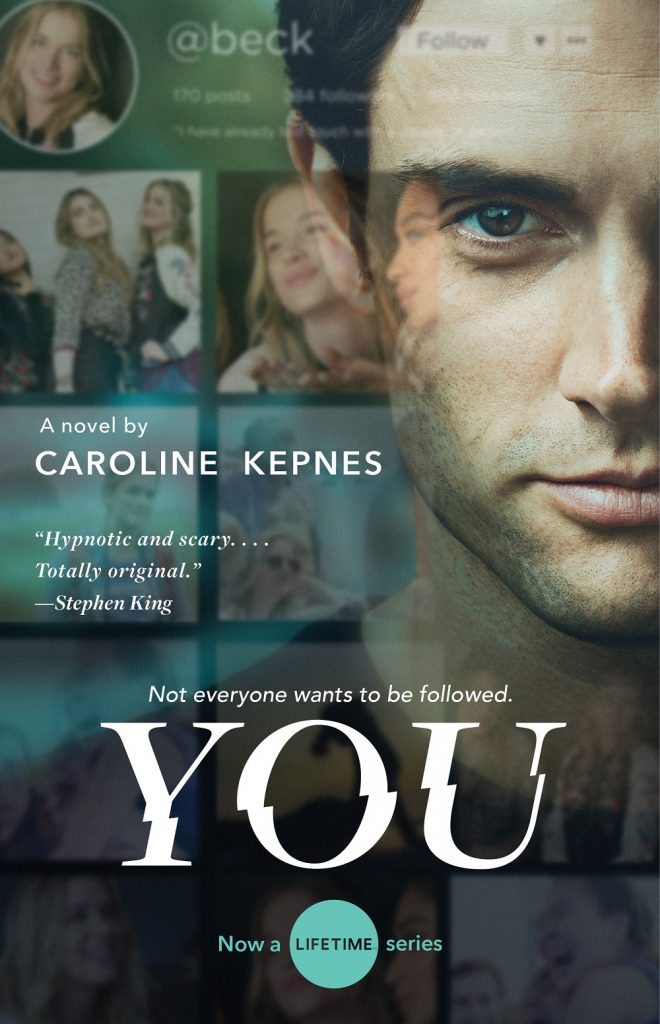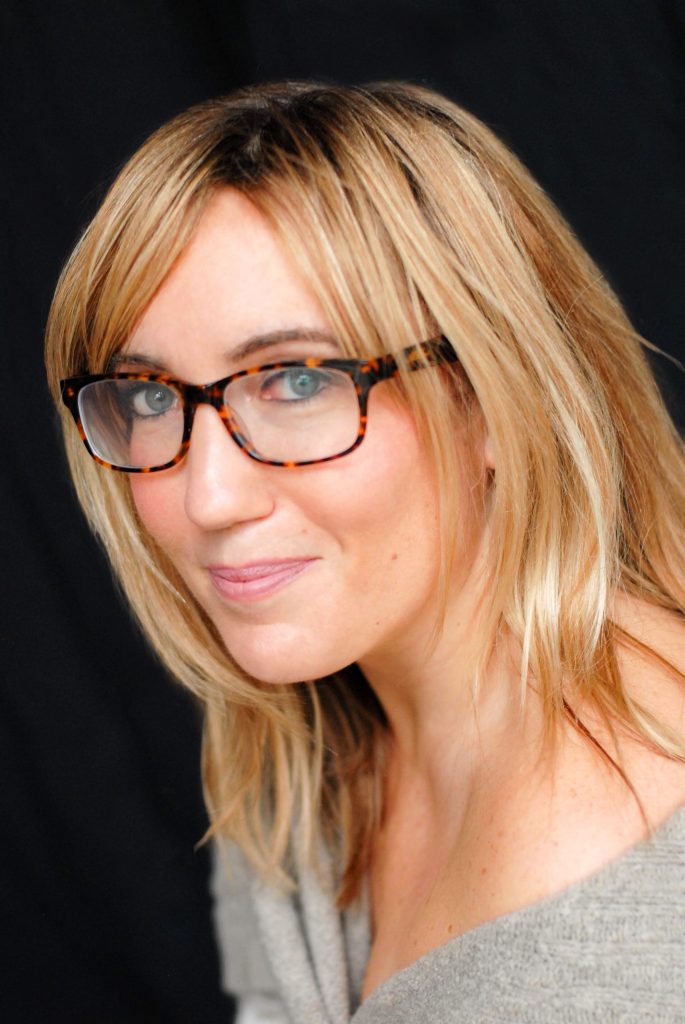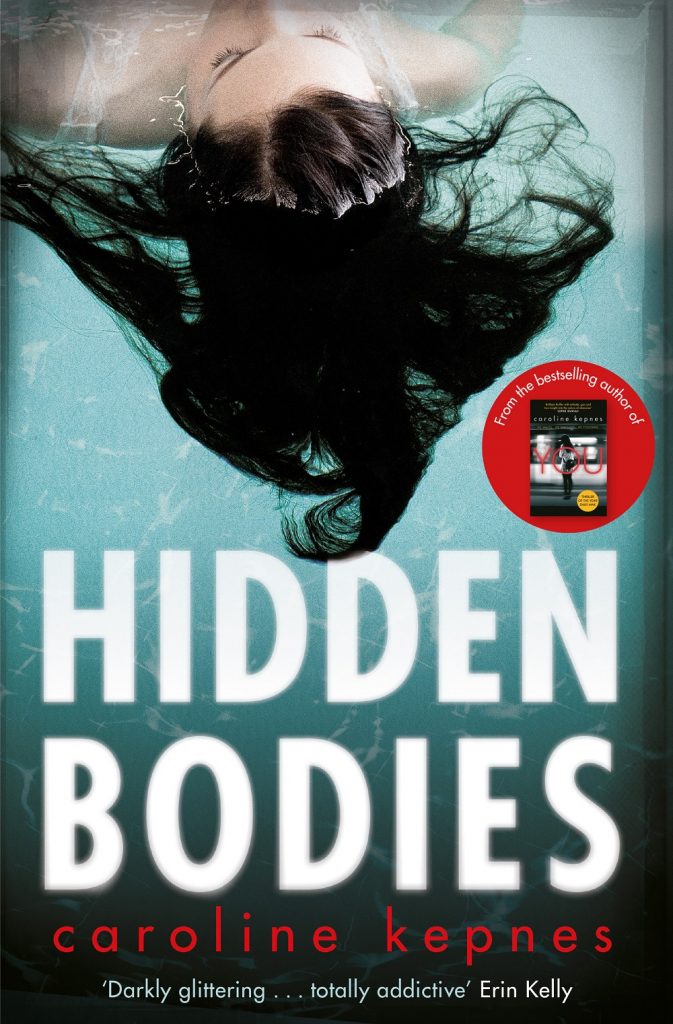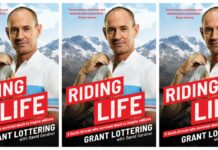The chilling series “You” took Netflix by a storm when it was released in September 2018. It followed a charming bookstore manager whose crush on an aspiring writer turned real sinister real quick. Like all great stories, the series was based on a book by best-selling author Caroline Kepnes. For all the “You” enthusiasts, there is another book about creepy Joe Goldberg called “Hidden Bodies” with a third one on the way. The Daily Vox chatted with Kepnes about “You”, stalking, and book snobs.
“You” was such an addictive book. I enjoyed it, I was disturbed by it, and I was disturbed by how much I enjoyed it. Why do you think as humans we’re so drawn to darker storylines about ordinary people who do bad things?

You nailed it with the mash-up of disturbance and pleasure. That’s how I felt writing and that’s what I hoped would happen when people read it. We all have a world in our head, and this was my attempt at bringing you on a deep dive into this world that’s very different from what you might expect were you to bump into this guy in a bookstore.
We have so much connection right now, access to so many stories at all times, the sense of knowing people. Through social media, you’re aware of people you knew, as in barely knew, in high school. You’re seeing what they had for breakfast and what their friends makes of this breakfast. What is your brain doing with this information? It’s putting people in boxes: Ordinary. Depressed. Married. Safe.
There’s a breakdown of boundaries that turns us all into mild voyeurs. You’re watching this person’s life like it’s a TV show. So when this person does something bad, it’s more compelling that it would have been had you not just been looking at a picture of their breakfast last week. You’re like, ‘But I thought I knew you’. It’s the dark side of all the connection. When the bad guy is someone we feel like we could know, someone we might know, it’s disturbing, it’s compelling. It’s natural to play detective and figure out what we missed. We’re all a little bit Joe every time we go online and check up on someone. It’s creepy to me because we’re all a bit creepy right now, you know?
Where did you get the idea for this book?
When I sat down to write this book in 2013, every quadrant of my life was a mess. I had emergency throat surgery and vocal cord damage and I was in silence, then I had to speak in a high-pitched British accent. Advice: If you ever want to annoy yourself and all living people, speak in a high-pitched British accent!

On a whole other scale, my family was in mourning. My father had passed away a few months ago. He and I were very close and it was a long, slow, painful road to the end. It’s true that you can’t ever prepare for loss. It’s still shocking to wake up and realize that you are never going to communicate with that person ever again. My dad had a dark sense of humor. The smiley face balloon in the book, yep, someone sent him one of those! I tried writing about him, I wrote a pilot about all the issues my parents faced with cancer. But it felt way too soon and it didn’t lift my spirits. Then I got Joe Goldberg’s voice in my head, and it was like, okay, this is cathartic. It’s not my diary. It’s liberating and invigorating to hear an offbeat voice in your head and figure out what it’s trying to say.
I was having trouble with all the noise in my head, in the world. I felt like we’re stuck in this never ending narrative, that evil word: The feed. I wanted to make a rival to all that noise, another feed, Joe’s internal monologue. It started to feel like an antidote to all the modern forms of communication. He doesn’t Tweet, he doesn’t compulsively socialise. He is on Joebook. As the reader, you see the feed. But if you know him in real life, nope, you can’t join his social network. It’s just for him. It’s just a means to get Beck. You know the end of The Social Network when Zuckerberg sits alone, he requests his ex-girlfriend and he refreshes the page, waiting for her response? That scene resonated with me. Joe is in ‘what can you do for me’ mode and if you get in his way, he will block you, mute you and oh yes, delete you. He just wants Beck. And that’s terrifying to me, someone who sees all space as MySpace.
I’m a compulsive person and once I heard Joe’s voice in my head, I couldn’t stop writing. The book was a great outlet for a lot of my emotions. It gave me something to obsess over every day, something to lift me out of my head, into his. I wanted to unpack a lot of things on my mind, classism, elitism, the cultural obsession with the “meet cute”, and explore what it means, right now, to be left to our own devices.
It was incredible to be in Joe’s head and to feel like we knew what he was thinking all the time. How was it for you to be in his head constantly? Did you do tons of research before writing it?
In a sick way Joe’s head is my happy place. Creatively, it’s fun, challenging and all-consuming. It’s one mindfuck after another. It’s a thrill to escape into this terrifying headspace and scare myself, and then feel for him, and around we go again and again.

I go down a lot of rabbit holes, get sucked into learning about something and then I become obsessed. Before I wrote You, I had written a biography for kids about Stephen Crane. I drew on a lot of that for Benji. I’ve done a lot of medical research because of family issues, and some of that went to Peach. Because of other experiences, I read a lot of psych research on narcissism, psychic vampires. You draw on so many different aspects of your life and your research in every book. Going way back, I designed my own major in college, Notions of Normalcy in American Culture. I did an independent study on repetitive consumption of pop culture and child developmental disorders. I think of Joe as one of those kids all grown up, all messed up.
As a woman, being stalked and killed is one of my greatest fears. Joe would describe himself as a romantic, and if you have no idea what’s going on in his head you would think he is too. But he’s really not. What is the line between being attentive and being obsessed? Or the line between being romantic and abusive?
I relate so much! The language of love stories is obsessive. “I can’t live without you. You’re everything to me. I was dead before I met you.” The extremes that feel romantic in a certain context are very different when you kill the music, the two-way street of it all. That’s what drives me with Joe. In his head this is a love story. It’s a slippery slope for the woman on the other side of that. You think you want to hear someone say they can’t live without you. It’s passion, it’s every love song, it’s endorphins and then” wait, what else is going on? At what point does someone’s love for you become more about their needs? Love is intoxicating, blinding. But obsessive abusers aren’t the best at identifying their own emotions and a lot of time, what feels and sounds like love is something very different. And then the next day it feels like love again.
The word ‘stalking’ has a lot of different connotations now. We casually joke about it, ‘heehee I stalked him online’. As an easily scared, somewhat paranoid woman, I am so freaked out by the evolution of language. I overthink these things a lot. When I was a kid, ‘following’ was a bad word. You wanted to be a leader, not a follower and following someone was a lowly, creepy thing to do, on a playground, in any dimension. Now it’s everyday life. I followed him and he followed me back. Okay, but now what? It’s a set-up for emotional confusion when you think about our world, everyone following each other around. Of course there are major, multiple boundary issues in daily life.
I always go back to Silence of the Lambs, the succinct statement about coveting what we see every day. That’s human nature. It’s a theme I loved in the book The Lovely Bones. Now, we have this whole other sphere of life that is ripe for obsession, for coveting. Because of the Internet, we see so much every day. This can be wonderful when it’s kittens but horrible when it’s human beings. It’s romantic to check out someone’s profile and see their taste in music, what they did last night. But it’s important to remember that that’s what they want you to see. It is, by nature, by definition, a display. It’s about them, what they want to share, to project. And it’s not necessarily for you; this is something I wrote about a lot in Providence. It’s a part of the crazy that fascinates me, the performative aspect of sharing your life with many to reach one.
It’s romantic to put yourself out there, reach out to someone. It’s abusive to deny that person the right to not reciprocate. Already, as women, we are ingrained with this idea that if we upset men, we endanger our own lives. It’s the small things. If you don’t smile at him, you make him feel bad, and then he might lash out at you. It’s the big things. If you reject him, he might attack you. It makes me think of another line in countless love stories. You broke my heart. The blame shift in that sentence, oof. That’s why I had a character in Providence who physically breaks other people’s hearts without meaning to. He hurts, you die. Unlike Joe, he doesn’t want it to be that way, but the results are the same.
I loved and hated that Joe was a book snob. Are you a book snob? What kinds of books do you read?
Oh the love and the hate of it! I am not a book snob. I read everything and I go with my mood. Book snobbery is this virus that some people can’t kick, but I think we all catch it now and then. I worked at a bookstore in my twenties, and when I was reading Lolita, I kept that book on the counter, by the register. But when I was reading Danielle Steel, well, I kept that in my purse. It’s all so stupid. Reading is subjective. It’s magical and you engage with every single book you read. I know it’s a basic need to categorise books, but it frustrates me when there’s this desire to say that one kind of book is superior to another. Every time someone asks me if I hate Dan Brown I’m like are you kidding?! The Da Vinci Code kept me awake for two days and that reading experience was one of the great book highs of my life. I am not Joe Goldberg, but I do love me some Paula Fox.
Most of us have lied and said we’ve read a book that we never finished, same way we’ve said we didn’t read some book that doesn’t feel like us. I’m fascinated by insecurity in all areas of life, but there’s something special about insecurity and posturing when it comes to books. Reading is something you do alone because it feels good, it’s good for you, it’s just you and the book. When you read a book and love it, of course you want to talk about it. Just don’t let a book snob get in the way of you and your communion with that book.
How do you feel about the Netflix series? Were you satisfied with how your characters and story came to life?
I love it so much. It’s a daunting task to read a book and translate it into a visual medium, especially a book like this that’s such a head trip. I thought of the primary setting as Joe’s head. You read, you live in there, you hear the songs in his head, the rationalisations, the way things and people look to him. Greg Berlanti and Sera Gamble magically brought that virtual reality experience onto the screen as they widened the world. Penn Badgley’s voiceover is immediately compelling, his tenderness and attention to detail with the character. Elizabeth Lail is so captivating, profoundly present and conflicted. So many people are watching the show, finding out about the books. And readers who were reaching out to me in 2014 are thrilled with the series and that means the world. I love books, I love TV, and I love all the conversations about how stories come across in different mediums.
And lastly, can we expect any more books in the future?
Yes! I am writing and there will be more books. Forever, I hope.









